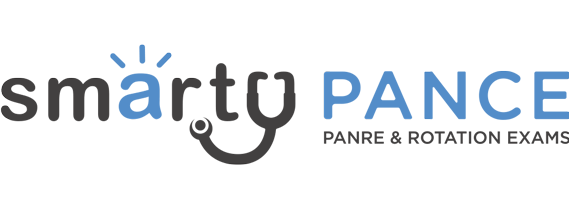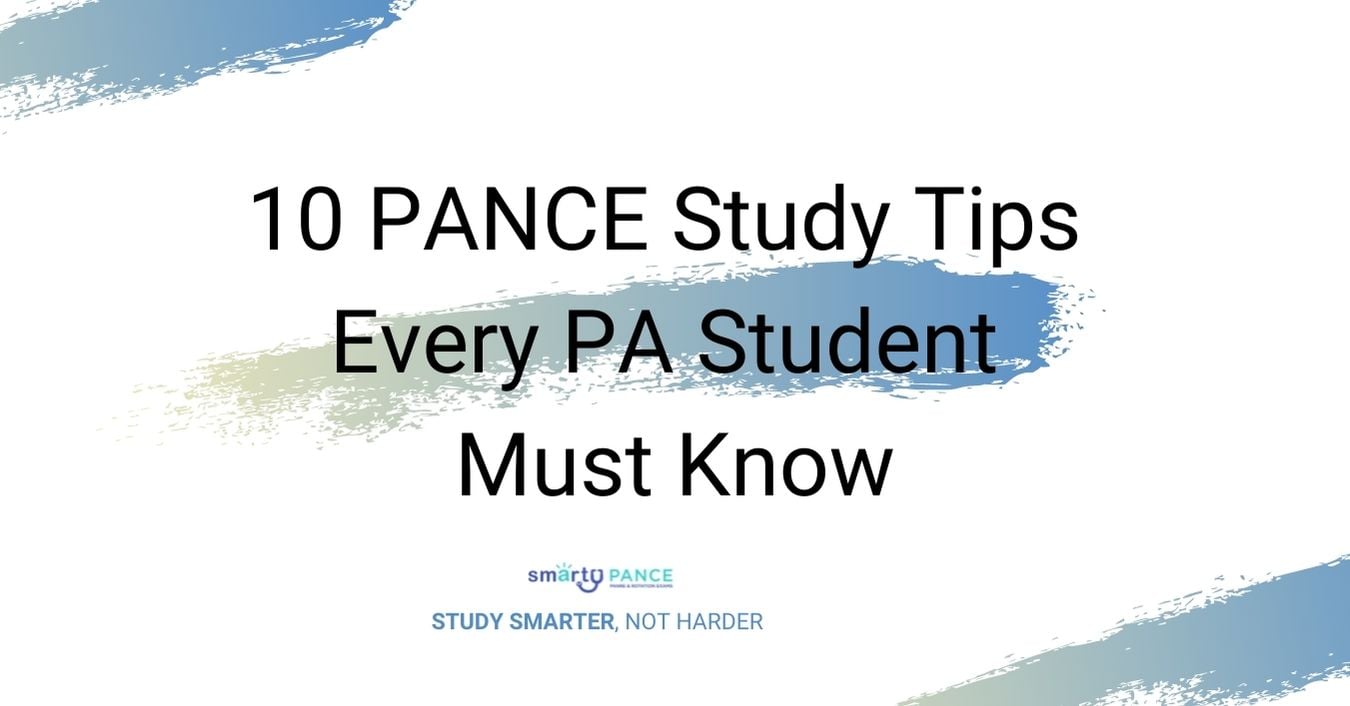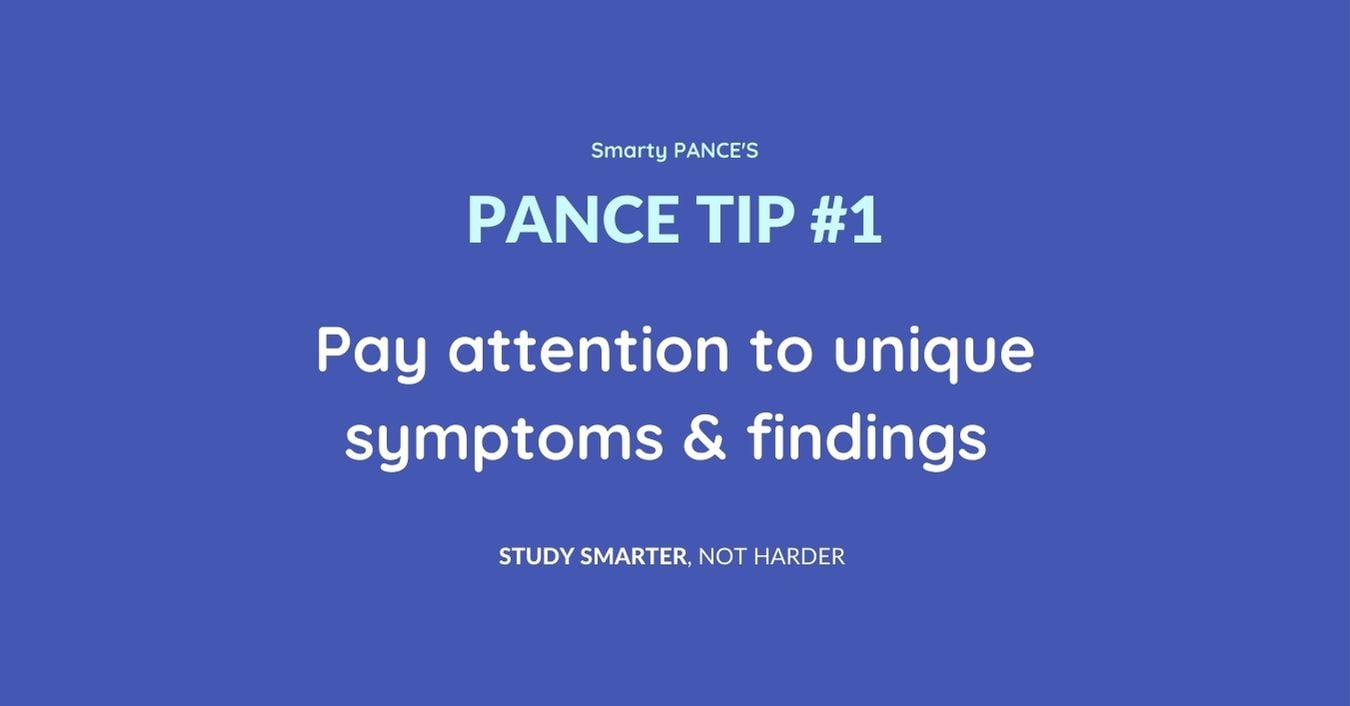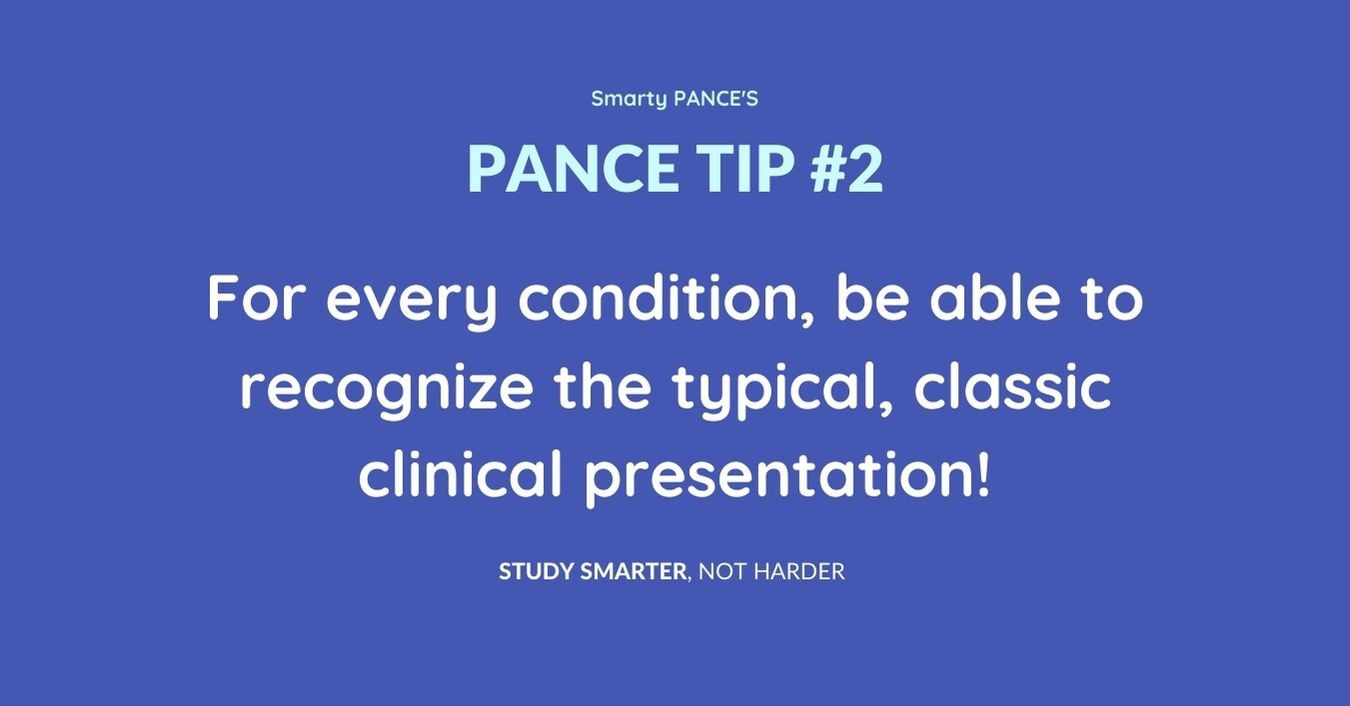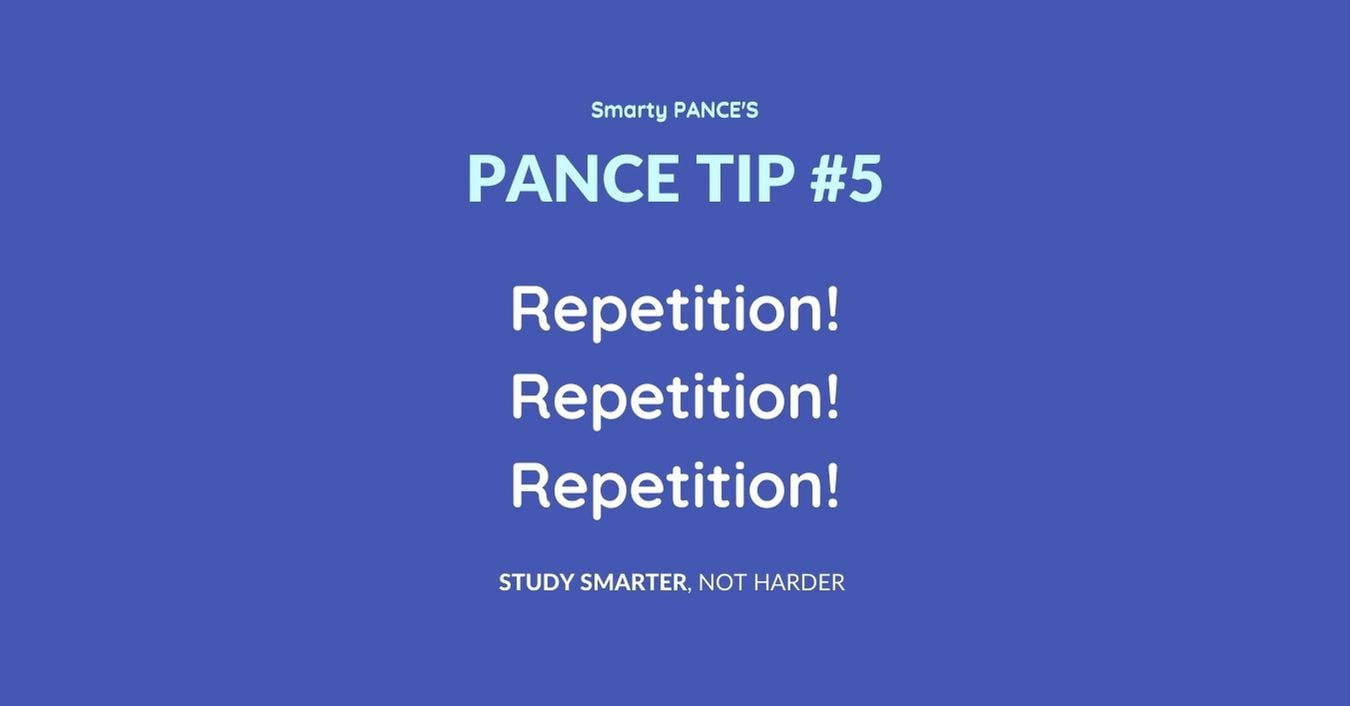The PANCE is a big test, but it doesn’t have to be scary.
It’s not about memorizing facts but rather about understanding how to apply information.
It's also about knowing what you’re going to study and how you will study it.
Here are ten study tips that will help you get ready for the PANCE as well as your PANRE and EOR exams.
PANCE Study Tip #1: Pay attention to unique symptoms & findings
The PANCE and EOR exams like questions about unique symptoms & physical exam findings. For example, patients with hypothyroidism may have hair loss of the outside third of the eyebrow.
When you are studying and read something that sounds unique — stop and really remember it. It is probably important (both academically and clinically)!
Even though clinically, these things can be rare, you should learn them. In fact, I know a PA who diagnosed a patient with Wilson Disease because she saw Kayser Fleischer Rings.
PANCE Study Tip #2: For every condition, be able to recognize the typical, classic clinical presentation!
It’s important to recognize patterns in medicine! Often (not always) conditions will have classic signs/symptoms that go together.
For example, classic signs of diverticulitis include LLQ pain, fever, & bowel habit changes. Another example is “ripping” chest pain that radiates to the back in a hypotensive patient (aortic dissection).
You should know the classic presentation for each disease listed on the PANCE blueprint!
When reading a vignette, coming to the correct diagnosis is critical in answering the question correctly. For example, there may be a question that asks about a “common complication for this most likely diagnosis,” - but if you don’t know the most likely diagnosis, you will never get it right.
PANCE Study Tip #3: Learn the most common causes!
In PA school, you are often given a long list of causes or risk factors for a certain disease.
Yes, that list is important, but some things on the list are MORE important than other things. Not all information is equal.
Main idea: Most common causes (MCCs), most common symptoms and most common risk factors are all really important!
For example, if a patient has acute pancreatitis, you shouldn’t be looking for a scorpion bite. You should expect the patient to have gallstones or use alcohol...since alcohol and gallstones are the two MCCs of acute pancreatitis. A scorpion bite can cause pancreatitis, but this is not as common.
As the saying goes, "When you hear hoofbeats think horses, not zebras!" Common things are common.
PANCE Study Tip #4: Do not rely exclusively on buzzwords!
Since the NCCPA updated the PANCE Content Blueprint in 2019, the PANCE exam has seen fewer buzzwords.
Do not expect to see the same “clues” that you often look for on exams. Instead of terms like “apple-core lesions” or “olive-shaped mass,” you may get more vague descriptive terms.
I think it may actually be good that the PANCE is moving more away from these buzzwords.
Why? Because in real clinical practice, a patient won’t blurt out a keyword/phrase, and neither will a lab/imaging result. 😊
PANCE Study Tip #5: Repetition! Repetition! Repetition!
When studying for the PANCE (or just during PA school in general), make sure to keep going over a topic or concept.
Spaced repetition has been shown to improve memory and scores!
If you study something just one time, it is unlikely to be stored in your long-term memory. So, keep studying and keep going through your notes (multiple times)!
PANCE Study Tip #6: Do a lot of practice questions!
Practice questions are a great form of studying.
Some people have this idea that they have to completely “finish studying” the material in order to do practice questions...but that's not necessarily true.
Questions are useful because they can help you determine what you DO need to study and what you do NOT need to study (i.e., stuff you already know). It assesses your current knowledge!
Make sure to understand the practice questions and take the time to grasp the topic that each question is covering! Don’t fly through the practice questions aiming for a score; instead, aim for more knowledge and understanding.
PANCE Study Tip #7: Read the last sentence of each question REALLY carefully.
It is imperative that you read the last sentence of a test question carefully.
Why? Because there is typically a huge difference between a question asking about an initial diagnostic test versus a "gold standard" diagnostic test. There can also be a big difference between the initial treatment versus a definitive, curative treatment.
Don't get a question wrong just because you skimmed over the last sentence. Take your time to understand what exactly the question is asking about!
PANCE Study Tip #8: Don’t study 24/7 leading up to your PANCE!
People have many different study strategies and approaches during the weeks/days leading up to the PANCE.
There is no “right” PANCE study schedule or approach. Everyone is different, and what works for one person may not work for another.
But there is something that is definitely not helpful - and that’s studying all the time without taking any breaks.
Breaks are super important! I know you may feel like you have to study non-stop for the PANCE (since it is a very high-stakes and expensive exam)…but that’s not helpful nor sustainable. So take breaks!
PANCE Study Tip #9: Answer easy questions first (especially near the beginning of the exam). Skip hard questions and come back to them later!
Studies have shown that the first few questions of an exam are very important!
WHY? Because when the first few questions are more straightforward, students have more confidence and perform better. However, if the first few questions are complex, people’s confidence declines, and they perform worse on the rest of the exam.
I know you can’t control the order of questions, but you can control which ones you answer!
For example, if you know your weakness is in HEENT and you are on question #2 and start reading a HEENT question...just SKIP IT. Please don’t get stuck on it. Come back to it later.
Main idea: Answer questions on topics you are strong in first! It will hopefully help boost your morale during the exam and help you pass!
PANCE Study Tip #10: Don't just reread your notes or books over and over again
Studies have shown that rereading study material is superficial studying.
Despite being one of the most common study skills students have, rereading notes/books is not a very effective way to study.
Instead, try mixing it up. Write your own practice questions over the material. Take practice tests. Do flashcards. Draw pictures or charts. Find ways to interact with information!
Now it's your turn!
So there you have it, ten tips to help you become a better test taker and pass your PANCE, PANRE, or any of your PA school exams.
Keep up the great studying, and good luck on test day!
For more tips, check out the Smarty PANCE Instagram page, where we post PANCE, PANRE, and EOR study tips every Sunday, along with a new content blueprint board review question five days a week!
Stephen Pasquini PA-C

